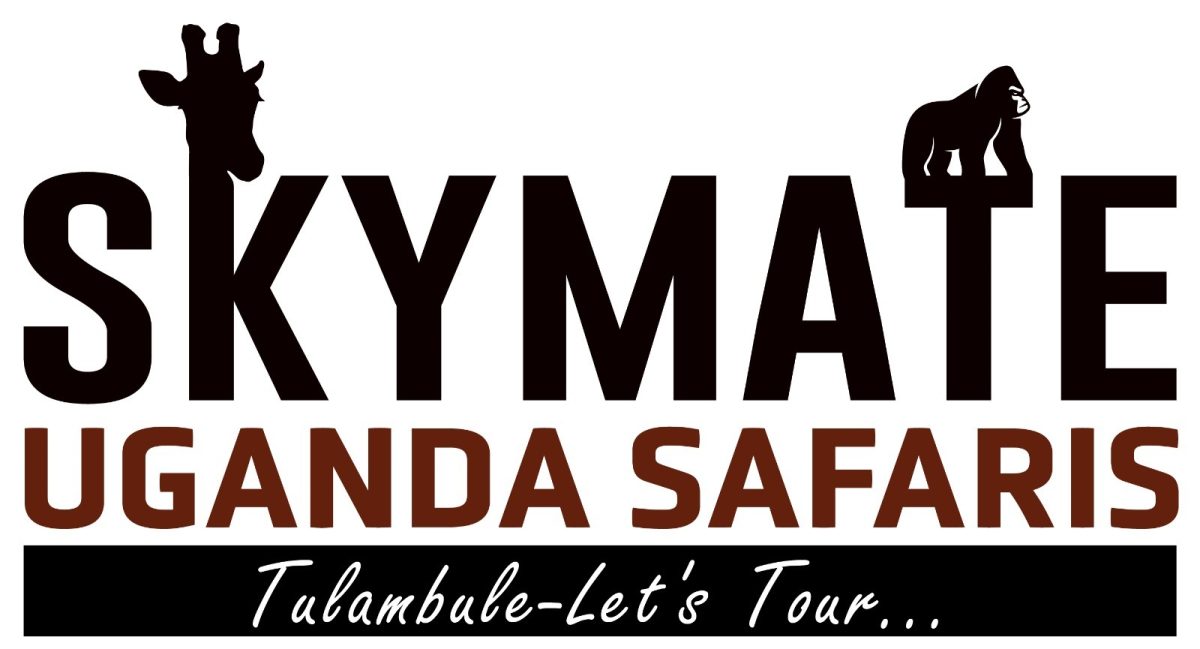Some people look to safari in search of refreshment and serenity. Others crave adventure and pleasure. It is totally your choice; each and every Tulambule safari is as diverse and wonderful as the hundreds of awesome creatures you will encounter. If this is your first safari, or even if you’re an experienced safari goer, you will undoubtedly have questions and concerns.
For your convenience, our safari specialists have amassed some frequently asked questions and answers to help you begin your adventure. Please click the question and the answer will expand beneath. If we’ve overlooked anything, contact us and let us know how we can help. We love to talk safari!
What To Pack For A Safari In Africa?
Clothing
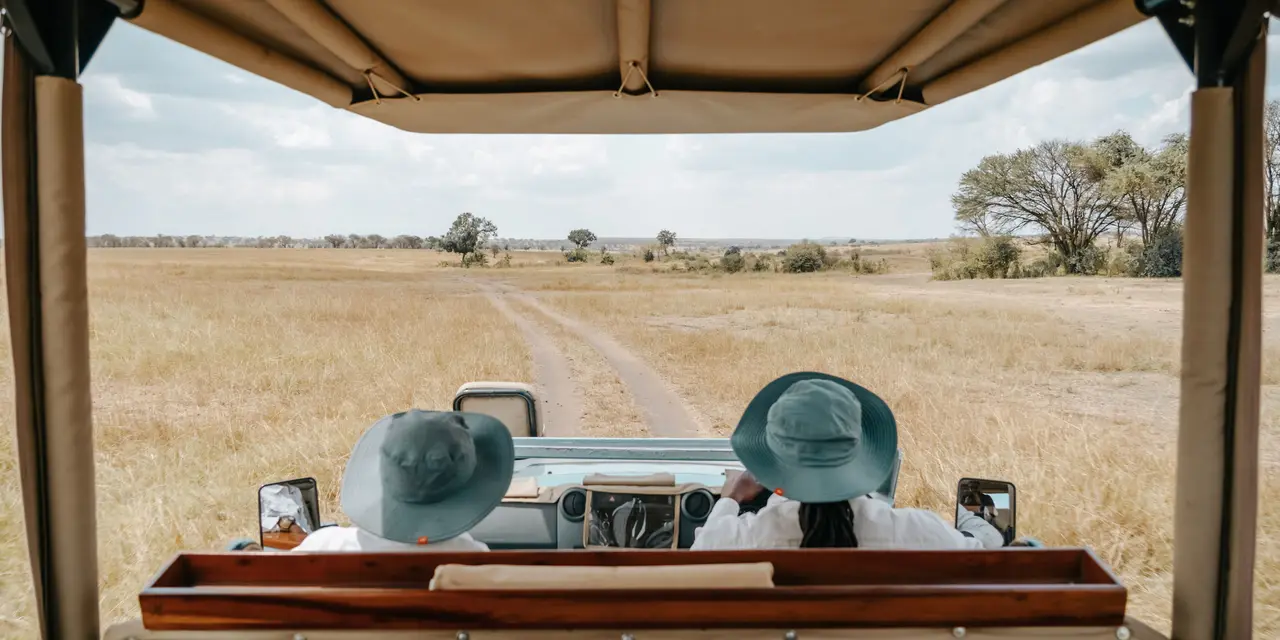
Casual clothes which are comfortable are perfect. Neutral tones and muted colours like khaki, green and beige are suggested for game viewing and gorilla trekking. Bright colours such as yellow, white, purple and red are not recommended. Africa safari game drives are usually take place in the early morning and late afternoon, which can be very cold, even during the dry season.
- Long-sleeved shirts for protection from the sun and insects
- Cotton blouses/T-shirts
- Long socks as bug protection
- Light buff/scarf for sun and dust protection
- Cap, hat and/or beanie
- A light skirt or shorts (short skirts aren’t practical)
- Safari trousers or jeans for cooler days and evenings
- Sweaters, jackets, gloves and a scarf are recommended for early morning game drives,
- A water-proof jacket which is light
- Beach and swim-wear
- Bring formal attire if you are staying at a prestigious hotel
- Good walking shoes and sandals (heels aren’t recommended)
Equipment
- Sun protection gears such as hat, sunglasses, sunscreen and lip protection
- If you wear contact lenses, we suggest you bring a pair of glasses along should your eyes get irritated by dust
- Your personal medical kit including malaria prophylactics if applicable
- Personal toiletries – most hotels/lodges supply basic amenities
- Your important travel documents, and digital and physical copies of them.
- Come with insect repellent for body application
- Lightweight backpack to carry essentials on walking and hiking safaris
- Tote bag or waist bag
- Insulated water bottle
- Tissues, hand wipes and sanitiser. Pack a spare toilet roll, just in case
- Binoculars: general purpose specifications are 8×40 or 10×42
- Camera & video equipment including spare memory cards, batteries, charging cables
- Waterproof / dust-proof bags for camera equipment
- Your mobile phone chargers
- Torch and headlamp + batteries
- Padlocks / cable ties to lock your luggage
- Ziplock bags of various sizes
- Ear plugs
- Travel pillow
- Power bank for on-the-go charging
- Country-specific adaptors and plugs
- Envelopes for tipping
- Pencil and notebook
- Relevant bird book or app – ask us for recommendations
- Your favourite entertainment to relax such as clouring book, sketch book, Kindle, books and magazines
What is a day on safari like?
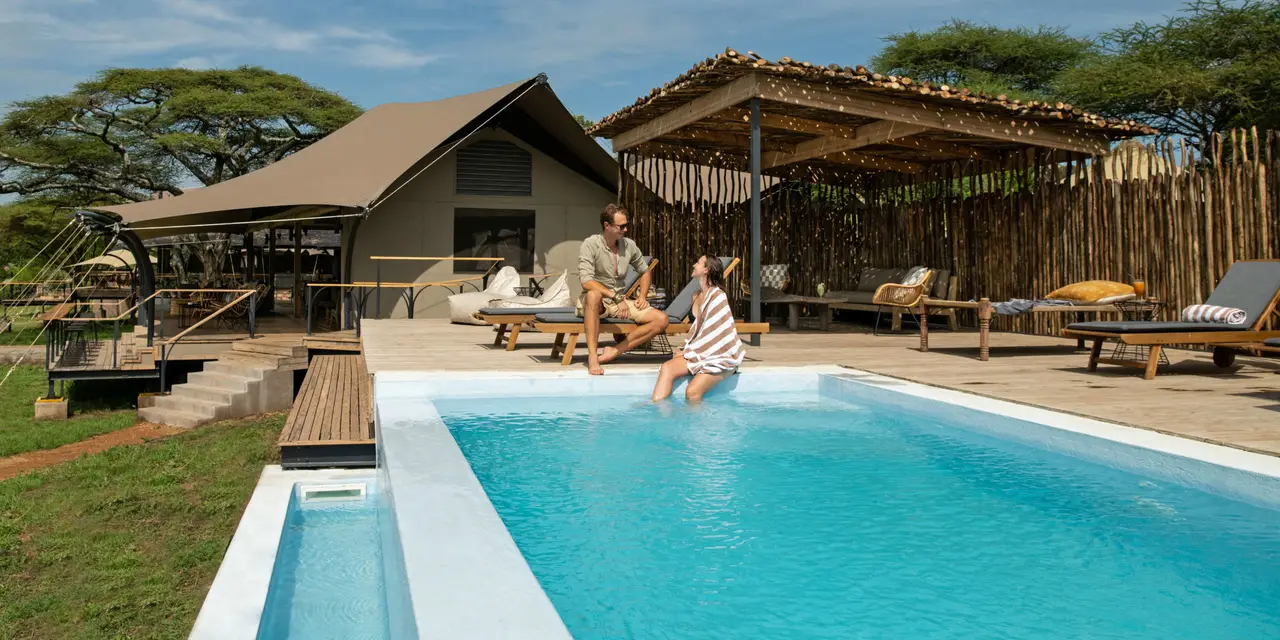
What to expect when on a safari depends on what activities are on offer, but most safari days in Africa usually look like this:
- Early morning wake up with coffee/tea and biscuits, or a light continental breakfast
- Morning game drive – usually for about 3–4 hours
- Late morning breakfast/brunch or early lunch
- Siesta but some travelers choose this time for bush walks or excursions to nearby local communities
- Mid-afternoon tea and cake
- Late-afternoon/evening game drive with sundowners and snacks, often ending up as a night drive (with spotlights) – usually about 3–4 hours
- Fireside drinks and dinner
This routine can change depending on what nature delivers during your stay.
What Are The Accommodation Types And Comfort Levels?
Some safari camps only operate for a part of the year. This might be because they are inaccessible during the rainy season, causing the camp to close for a portion of the year or possibly be dismantled and rebuilt on an annual basis. Others are created for specific animal encounters, such as seasonal wildebeest migrations in the Serengeti and Maasai Mara (often referred to as ‘migration camps’), then disassembled after the relevant season and erected again when needed.
Mobile Tented Camp
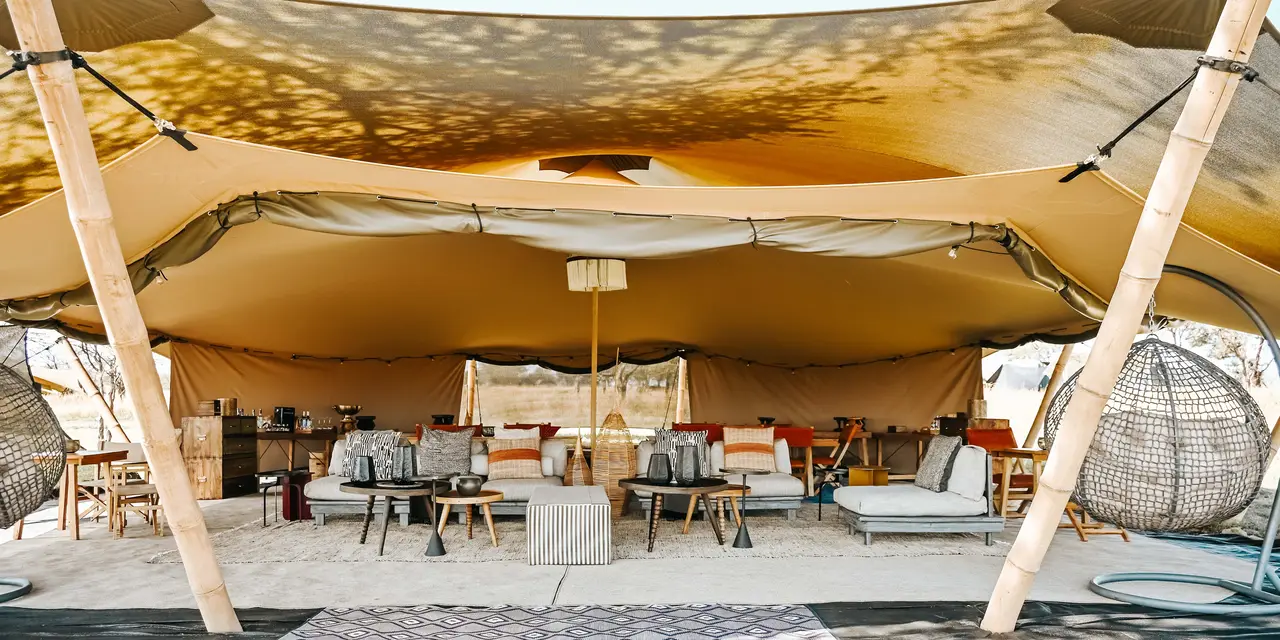
These camps accompany mobile safaris and are erected for a few days, after which they are broken down and moved elsewhere. Typically, mobile tented camps are canvas tented campgrounds that are off the grid, devoid of amenities like swimming pools, and frequently without internet access. Mobile tented campgrounds are commonly referred to as “glamping” because all of your needs, including mouthwatering meals prepared over open flames, guiding, hot showers, camp moving and cleaning, and gadget charging, are met.
Safari Villa
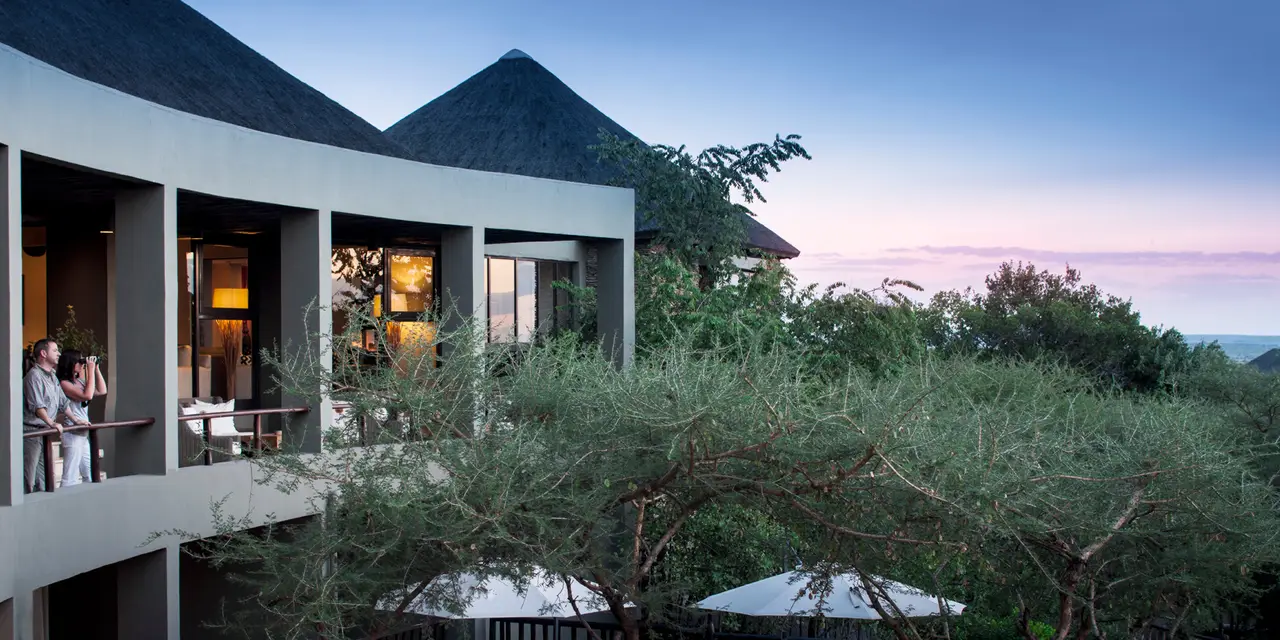
A safari villa is the perfect way to have a truly tailored and private safari. Villas are intended to offer luxury safari accommodations for a group of people, typically six to eight people. They are perfect for multi-generational families and groups of friends.
Safari villas include all the comforts and amenities you would expect, making them feel like homes away from homes. The degree of luxury varies; some villas include private pools, interactive kitchens, and a special game drive vehicle. Typically, a committed group of people will take care of all of your needs, including housekeepers, personal chefs, butlers, babysitters, and guides.
Country And Coastal Hotel/Guesthouse
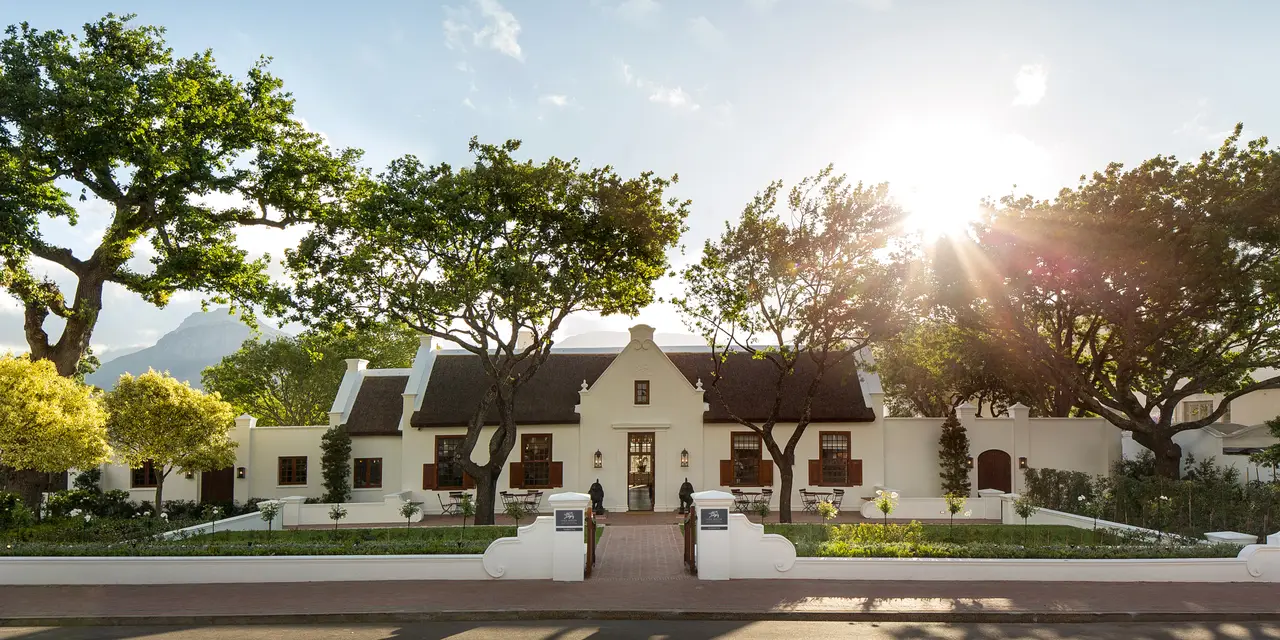
These are usually situated along the ocean, in farming communities, rural areas, or small towns.
Typically constructed of brick and mortar, these hotels and guesthouses feature a conventional or historic style. On the other hand, coastal properties tend to feel more laid-back or like “boutique resorts” and frequently use local materials like wood and palm fronds.
Travelers spending the night on a lengthy road trip or those on safari in the region—which includes birdwatching, cultural excursions, and wine tasting—often prefer country residences. Travelers are drawn to coastal residences where they can unwind and partake in water sports during the day. The majority of the amenities and services you would expect are provided by these organizations, while internet access might be spotty in more rural areas.
Walking And Fly Camps
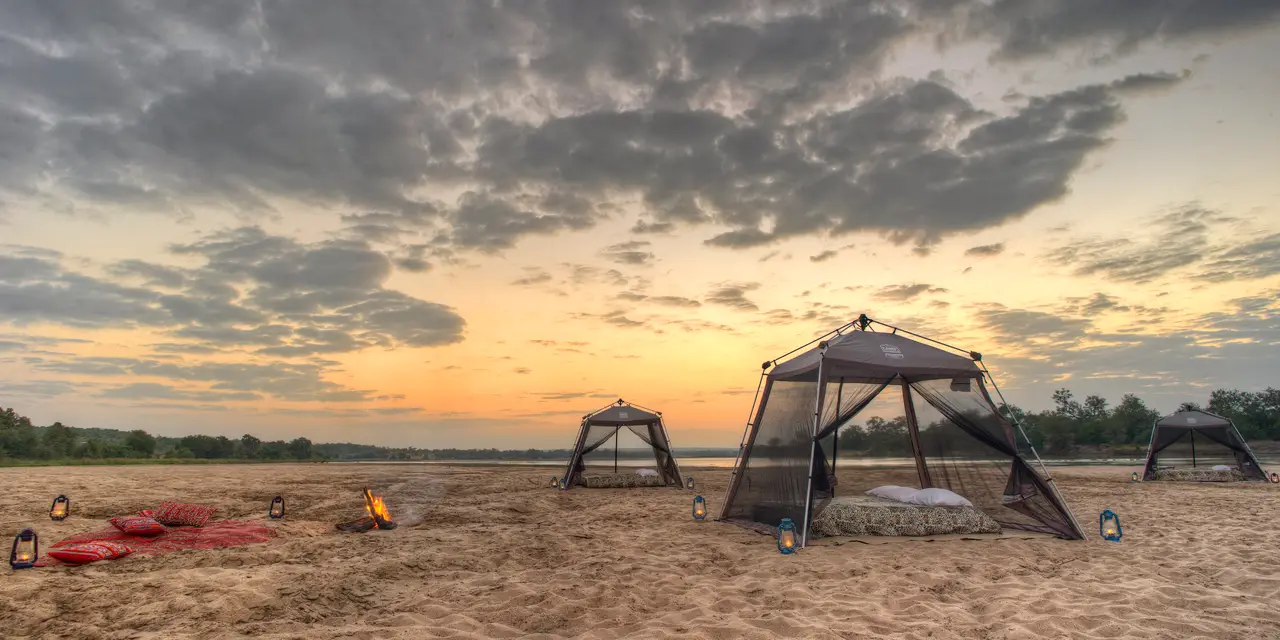
These small, temporary camps have a defined function and leave little or no permanent footprint after they are gone. Some are created especially for you and are occasionally only offered upon request.
Some are raised and taken down each day during the walking safari and go with walking safari parties. Canvas tents and, for the more daring, basic mosquito netting supported by rope are among the building materials utilized. An extremely immersive, off-grid experience is provided by fly camps.
Expect no internet access, long drop/pit toilets (or a spade and loo roll), and bucket/safari showers with water heated over coals. You should also anticipate less variety and elegance than in permanent camps and lodges, but delicious meals are cooked over open flames. You will be properly directed and cared for, as is always the case with safaris that we offer; you won’t have to move the tent yourself.
City Resort, Hotels And Guesthouses
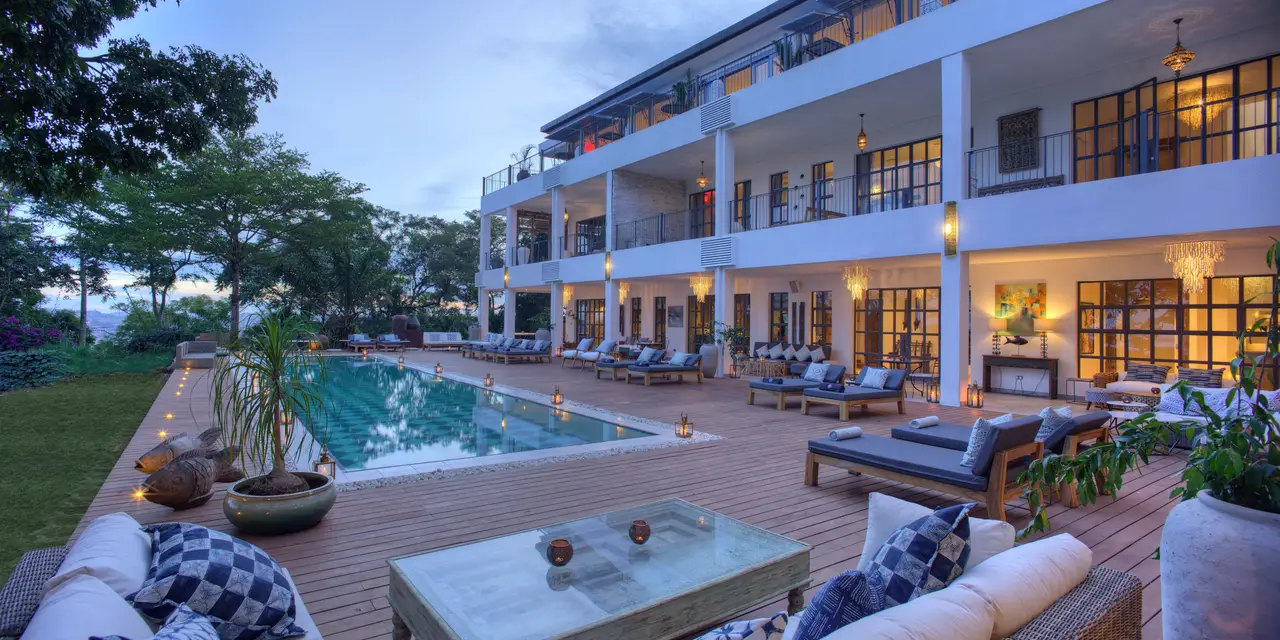
Often utilized for overnight stays either side of your safari, these resorts are located in or close to major cities or airports. These can range from big resorts, which are popular with families and large groups, to tiny guesthouses, which are popular with couples and lone travelers, and boutique hotels in cities. They might have a modern or ancient design, but they are always constructed of bricks and mortar. All of the standard amenities and services that one would anticipate from any metropolis are provided by these establishments.
What Is Food Like on A Safari?
Quality (and quantity!) of food will impress you. Every property will have its distinct flair, ranging from sophisticated Euro-cuisine to local African food.
Expect attention to detail, even with hors d’oeuvres and fireside snacks. Even the most basic bush camps and mobile camps that cook over coals often put extra effort into preparing the most appetizing meals.
Please let us know your dietary requirements so that we can inform the catering services on your safari about your needs, whether for health or religious reasons.
What are the luggage restrictions?
Many safari lodges and camps can be accessed by a flight. Weight restrictions on small aeroplanes are generally 12–18 kilograms in soft bags for all luggages, including camera equipment.
Please take these limits seriously. Let us know if you have excess luggage weight or if you weigh above 100 kilogram – you may need to pay a premium.
Keep your clothes to a minimum as safari style is casual, and there is most often a daily laundry service. Use soft luggage so it can be stowed easily in the luggage hold of small air crafts.
Do Lodges and Hotels Offer Laundry Services?
Most of lodges and hotels offer a daily laundry service.
A few rules:
- Underwear: please wash your own underwear with soap offered by your lodge, or request soap from the lodge manager. Most washing is done by hand, and cultural restrictions mean that many lodge staff members will not wash the underwear of other people.
- Do not hand in expensive or delicate clothes– the laundry process is often rather rudimentary and could cause damage to your clothes.
- Plan on a 24-hour turn-around for your washing (though rain delays can occur)
